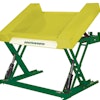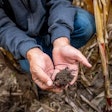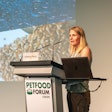
The Animal Health Corridor includes the land area between Columbia, Missouri, USA, and Manhattan, Kansas, USA, and is well-known for being a hub of animal agriculture and, subsequently, pet food manufacturing.

While the Animal Health Corridor covers a small segment in the heart of the U.S., it plays a large role in the pet food industry.
“The Kansas City region is a dominant and growing force in animal health and nutrition,” according to the KC Animal Health Corridor, an affiliate of the Kansas City Area Development Council. “Between Columbia, Missouri, and Manhattan, Kansas, sits the single largest concentration of animal health interests in the world. More than 300 companies supporting the Animal Health Industry call the KC Animal Health Corridor home. Kansas City’s virtually unparalleled strengths in transportation and distribution add to the significant advantages of doing business here.”
Alongside the many logistical advantages the area offers (the largest rail center by tonnage in the U.S., the top air cargo center in a six-state region, its location at the intersection of four interstate highways and on the largest navigable inland waterway in the country, among other benefits), businesses and academia in the Corridor have cultivated an atmosphere of unmatched production and competence when it comes to animal health and nutrition. It’s no surprise pet food has put down roots in the heart of it all.
Pet food in the Corridor: small towns and big business
Sabetha, Kansas, USA, is located in the northeast corner of the state and is sitting in a prime location within the Corridor for trade — and for pet food. Several of the industry’s manufacturers, equipment suppliers and ingredient suppliers call Sabetha or the surrounding area home.
“Being located in close proximity to Sabetha, with its rich history of the pet food manufacturing industry, and supporting companies such as Wenger, Extru-Tech, Schenck Process, Bachelor Controls and NorthWind Technical Services, has always been a benefit and an advantage over the competition,” said John Krehbiel, vice president of co-manufacturing sales at CJ Foods. CJ Foods is a private label pet food manufacturer founded in 1985 and headquartered in Bern, Kansas, USA. “Being centrally located within the U.S. itself, logistically, has been beneficial to our success as well.” The company currently operates four separate pet food manufacturing facilities that produce a majority of superpremium kibble pet food for more than 35 brands, and three of the four facilities are within 35 miles of Sabetha.

FIGURE 1: Missouri and Kansas, the most significant contributors to the Animal Health Corridor, are also consistently in the top five states contributing to the pet food market in the U.S.
“Additionally, in 2018 CJ Foods acquired Lortscher Animal Nutrition (also headquartered in Bern), adding their ingredient processing (all for pet food) facilities in Bern; Seneca, Kansas; and Brownwood, Texas to the mix,” said Krehbiel. “Today CJ and Lortscher together employ over 475 people, and 375 of those are within 35 miles of Sabetha.”
Lortscher itself has been in the pet food business for over 70 years, as an ingredient supplier with access to more than 800 ingredients available for the blending and milling services the company also provides out of its three locations.

Lortscher, an ingredients supplier located in Bern, Kansas, sees logistical opportunities as one of the primary perks of being located in the Corridor. | Photo courtesy Lortscher Animal Nutrition
“There are many benefits of being located in northeast Kansas,” said Lisa Kidd, sales manager for Lortscher. “Logistically, we have an advantage of being centrally located as freight has shown to be a bit more challenging these past few years. Due to the Corridor we have several customers within a 90-mile radius, and these close proximities only assist with production/planning. Lastly, we benefit from the hard-working people who live in these communities who take pride in what they do.”
Logistics — both in terms of supplying customers and in proximity to business partners — was a common answer when discussing the benefits of being located within the Corridor.
“Being located in Sabetha puts us in close proximity to other pet food industry suppliers and business partners such as Wenger and Extru-Tech, and additionally it keeps us logistically close to many manufacturers of pet food,” said Mike Karas, director of marketing for Schenck Process LLC. “Distance equals quicker ship times and faster service response.” Schenck is a worldwide supplier of weighing, feeding, conveying, screening and automation technologies.
“Wenger Mfg. began supplying extrusion systems to the first producers of pet food in the area back in the 1960s and continue to count many of these groups as our top clients,” said Dennis Funk, vice president of Wenger’s companion animal division. “The close location of Wenger to these groups allowed for a tremendous amount of cooperation and co-development of products and processes, much of which occurred in the Wenger Technical Center in Sabetha.” Wenger was founded in 1935 in Sabetha, and according to Funk the company has no plans to move from the location even now with its fourth generation of family active in the business.
“Sabetha is located in America’s grain belt, where a focus on value-added processes and technology have always been found,” said Funk. “This location allowed Wenger to connect with the initial players in the pet food market and help grow the industry alongside our partner clients. The world’s pet food players all look to this region for insight and innovation, as shown by the continued growth in Petfood Forum, now held in Kansas City. The closeness of this market and the numerous solution providers allows Wenger the ability to stay on the cutting edge of industry advancements.”
Challenges in the Corridor: labor
Logistically, the Corridor is a solid place to do business, something readily acknowledged by the pet food industry segment located in the area’s small, agriculture-focused towns.
“Being located in a small town does not present as many challenges as one might think,” said Matt Lueger, vice president of sales for NorthWind Technical Services, a control systems integrator located in Sabetha. “With web connectivity being as good as it is today, we have the ability to reach our customers throughout the world from our desks in Sabetha, assisting them with remote startups and system troubleshooting. When we do travel to a customer’s location, the Kansas City Airport is conveniently located just an hour-and-a-half away. Both of these allow us to have a highly technical company in the small town we love.”

NorthWind says technology has allowed the company to flourish in spite of being located the somewhat rural area the Corridor is known for. | Photo courtesy NorthWind Technical Services
However, along with the small-town love comes small-town issues, including a limited labor force and an exodus of the current generation to higher population areas (and the opportunities those areas can provide).
“Northeast Kansas and Southeast Nebraska are low population areas, both in terms of the size of the communities and the surrounding counties,” said Krehbiel. “At the same time, within these communities/counties the unemployment rates are among the lowest in the nation, so competition for jobs is typically pretty intense. Generationally, there are fewer college graduates wanting to return to these communities as once was the case. The types of technical skills that are required to operate these plants (and all the equipment within them) dictate that something more than just a high school diploma is required, but a lack of ‘technical/vo-tech’ training opportunities in the area is not helping the situation.”
Even so, the much-lauded “Midwest work ethic” is in full display in the Corridor, something the companies located there say somewhat offsets the labor pool’s limitations.
“The challenges Wenger faces by being in Sabetha are the same as any significantly sized company has being in a relatively small town — namely, the limitation on work force numbers,” said Funk. “However, we are exceptionally lucky this region of Kansas holds its roots in a strong work ethic and people dedicated on the long-term growth of their community. This has allowed Wenger to maximize our labor pool and develop a business with world-class skilled labor.”
Alongside that, academia is stepping up in the area to promote the future of the industry.
“We do face challenges in the corridor related to labor, but given the importance of pet food and food manufacturing for the work force in the area we have seen some of the regional educational institutions responding with support through their offerings,” said Bob Niehues, director of commercial development for northeast Kansas-based ADM Crosswind. The ADM Crosswind facilities have roots in the area dating back to the 1980s, and over the years has expanded its business in the Corridor to align with market demand for pet food and treats. The company has also been expanding its investments in animal health and nutrition research and development, notably through ADM’s acquisition of Crosswind Industries in 2017.
The Corridor’s future as a pet food industry hub
Given both the benefits and the challenges of the Animal Health Corridor, those in the pet food industry who call it home say the pros far outweigh the cons, and the future looks bright.
"The Sabetha area will continue to play a very important role in animal health as the area companies, along with their employees, understand the importance of providing unique solutions to this industry," said Rachel Ulreich, marketing specialist for Extru-Tech Inc. Founded in 1985 in Sabetha, Extru-Tech first entered the extrusion industry by supplying rebuilt extrusion equipment and providing extrusion technology to the human food, aquatic feed and pet food industries. "Technology advances will always play a key role, but the experienced personnel found within each company is what will keep animal health clients moving forward."
Sabetha in particular has become a hub for the industry, as the town and the surrounding area continue to make an impression on those in the pet food business.
“Sabetha’s ties to the pet food industry are very solid and the companies located here will play an important role in the industry for many years to come,” said Lueger. Others expressed similar sentiments.
“In our area alone, you have pet food professionals from every sector of the industry within arm’s reach,” said Kidd. “Everyone plays an important role in the continued growth and success in the pet food industry. No one company can do it alone, so you will continue to see these companies expand, innovate and flourish, which will not only benefit the pet food industry but the communities in which they are located.”



















